
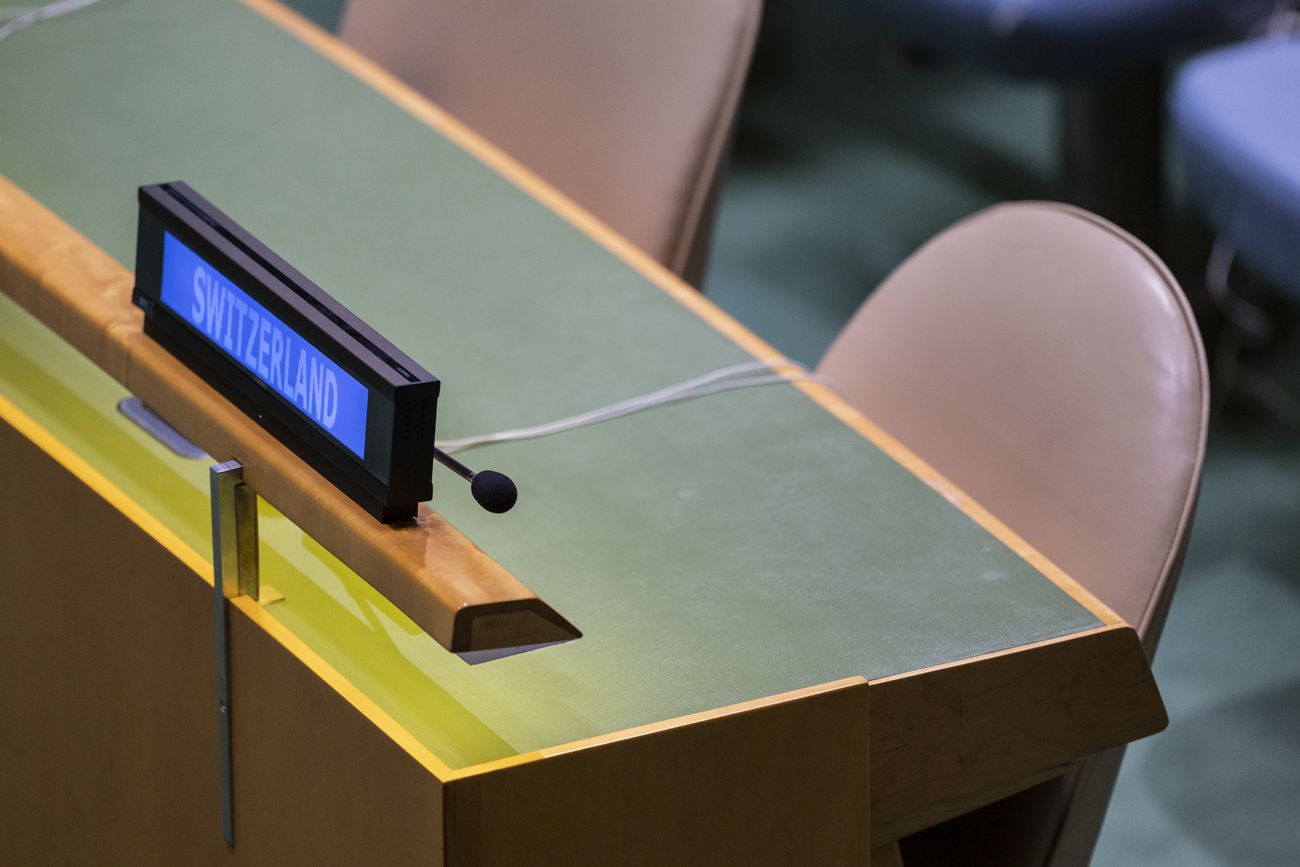
Switzerland Today
Dear Swiss Abroad,
The United Nations (UN) has given Switzerland the tricky task of bringing the parties to the Geneva Conventions, including Israel, together around the same table in the next six months. The aim of the special mandate is to discuss the Middle East crisis and ending the Israeli occupation of Palestine within a year.
Meanwhile, in Switzerland, another idea is gaining ground: the digital collection of signatures for popular initiatives.
Best wishes from Bern.
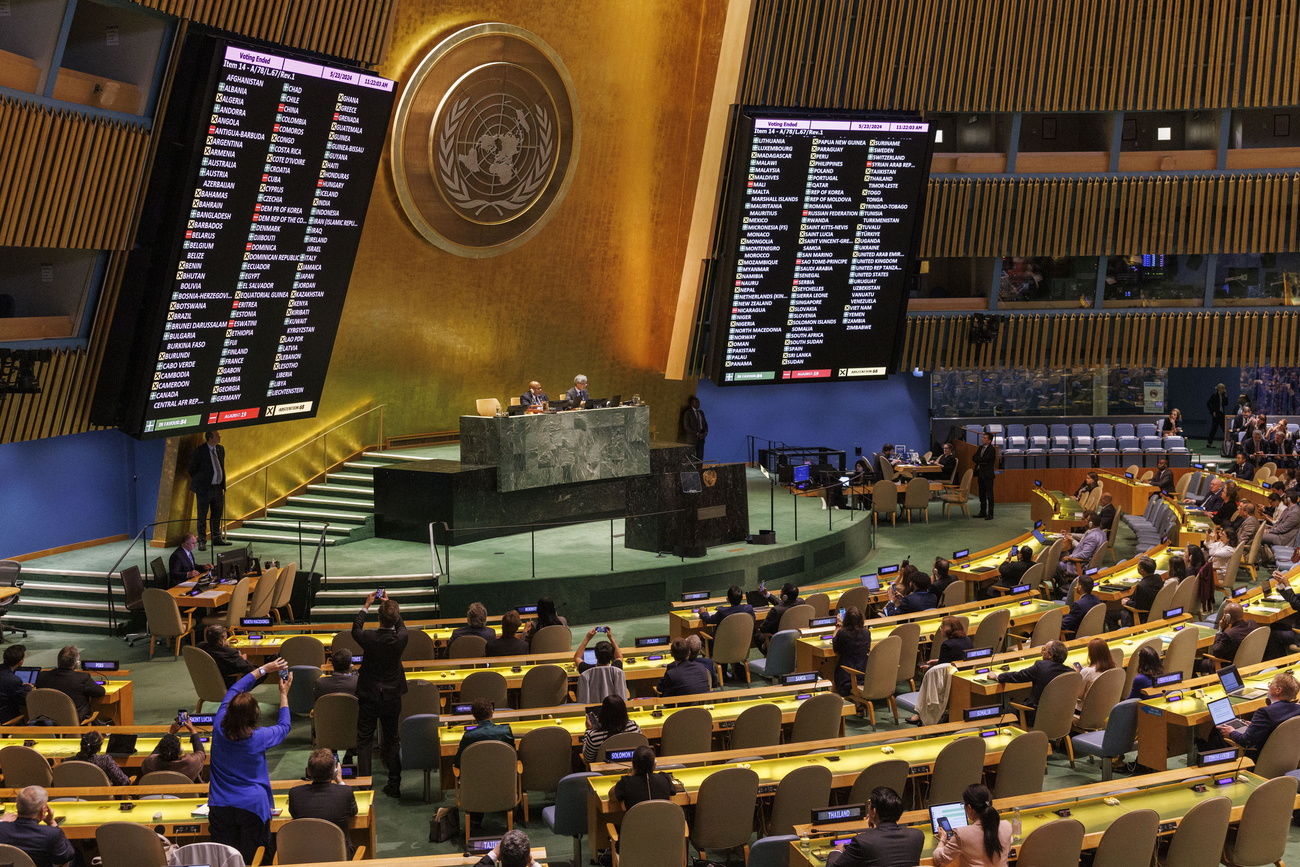
The UN General Assembly has given Switzerland the special mandate of organising a meeting on the Middle East crisis within the next six months. Recent events in Lebanon have made the situation even more urgent.
The decision follows a request last April from the UN Human Rights Council in Geneva. Palestine then took the initiative of proposing a draft text to the General Assembly for the first time.
The resolution’s most significant demand is an end to the Israeli occupation within a year. It also calls for the General Assembly to organise an international conference on the implementation of UN resolutions on the conflict and the two-state solution.
The Palestinian draft resolution was approved by 124 votes to 14 against and 43 abstentions, the required two-thirds majority (with three votes against). Switzerland abstained, saying the text went too far.
But Switzerland “will carry out the mandate entrusted to it by the resolution”, Swiss ambassador to the UN in New York, Pascale Baeriswyl, told the other states on September 18. International humanitarian law (IHL) and the protection of civilians must be honoured, she added.
More detailsExternal link on RTS (in French).
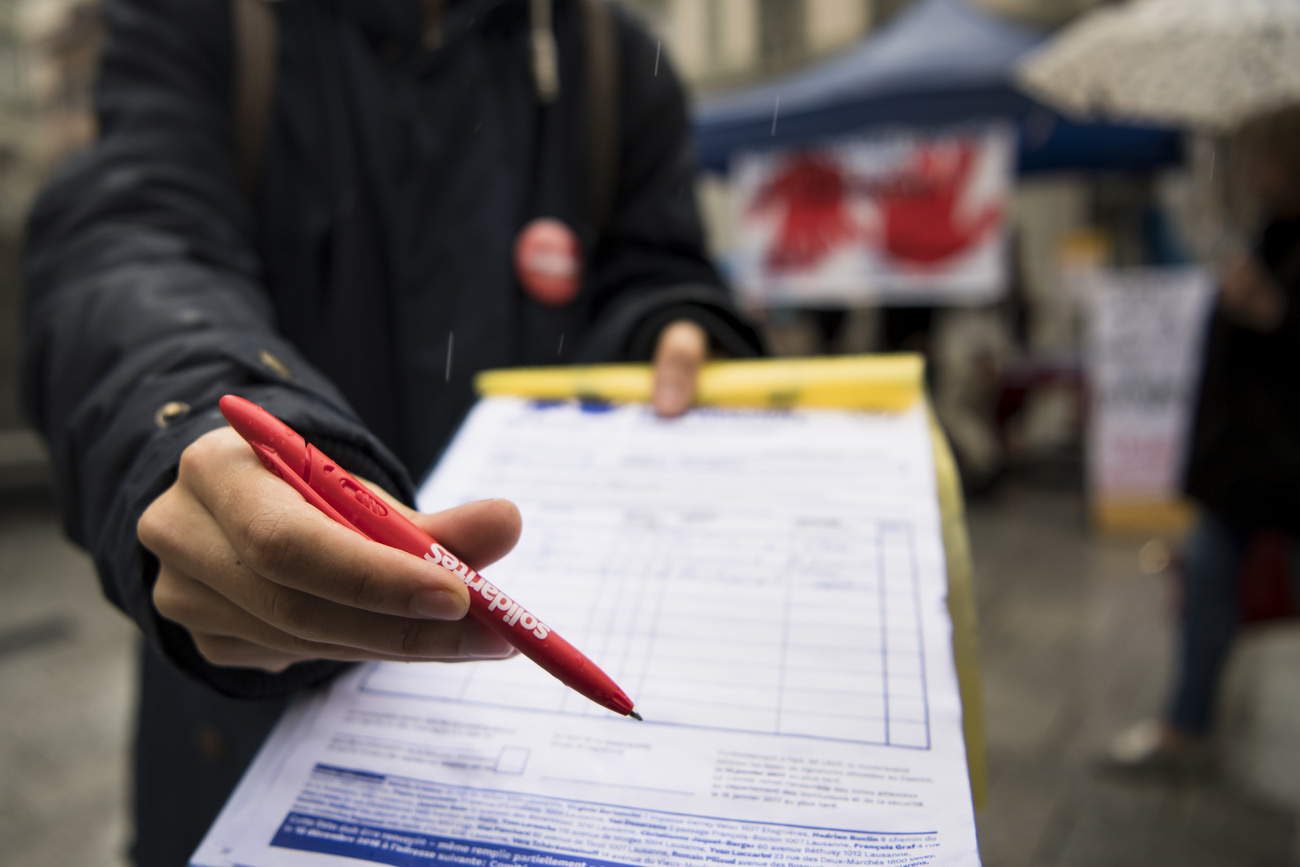
The recent scandal involving alleged forged signatures for popular initiatives could speed up the introduction of digital signature gathering. On Wednesday, six parties tabled motions in parliament to this effect.
Green parliamentarian Gerhard Andrey has convinced six parties – the Social Democrats, the Green Party, the Radical-Liberal Party, The Centre Party, the Swiss Evangelical Party and the Liberal Green Party – to table motions in favour of collecting signatures electronically.
He would like to launch a pilot project in which some of the signatures for an initiative or referendum could be collected electronically. This would “greatly simplify the verification work of the communes”, says Andrey.
The Swiss People’s Party, however, says there is no need to introduce e-collecting. “Politics is a physical thing. The discussions we have when collecting signatures are essential,” argues Zurich parliamentarian Gregor Rutz.
Until now, parliament has always rejected electronic collection of signatures for fear that it would make it too easy – which would lead to a flood of initiatives – or that data protection would not be guaranteed. But the introduction of the new electronic identity (e-ID), adopted last week, could well change that.
Articles on RTSExternal link (in French) and SRFExternal link (in German).
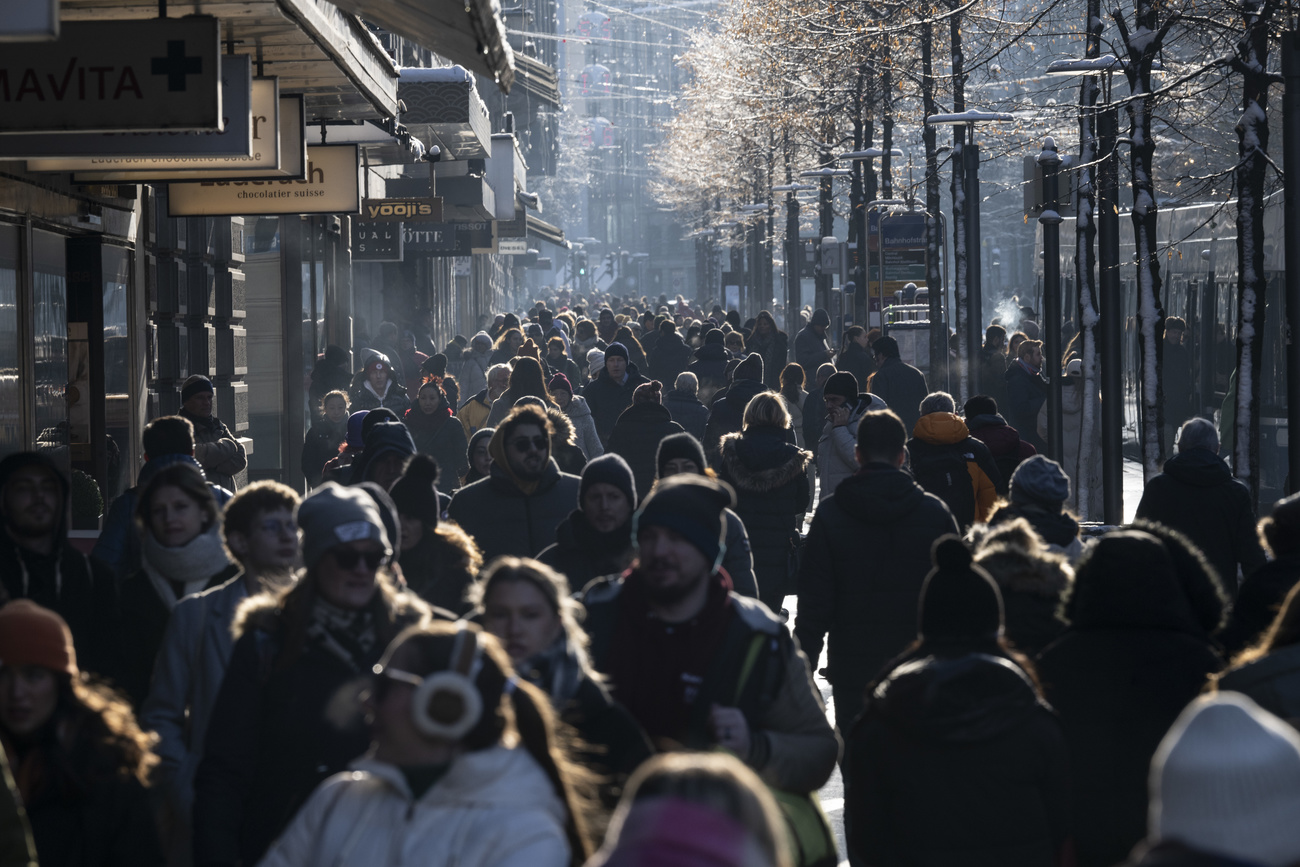
Switzerland now has nine million permanent residents. The milestone was passed in June, the Federal Statistical Office (FSO) announced today.
Among the permanent resident population, the FSO counted 6,560,361 Swiss nationals and 2,442,402 foreigners (27.1%). The 20-64 age group represents around 5.4 million people, and there are almost as many young people (under 20) as there are senior citizens (over 65).
Since the first census in 1850 (2.4 million residents), this is the seventh time that Switzerland has passed the one-million mark. It took 12 years for Switzerland’s population to rise from eight to nine million (from 2012 to 2024), the same time it took to go from five to six million (1955-1967).
Last year, the permanent resident population of Switzerland rose by 1.7% to 8.96 million. In 2023, the population grew almost twice as fast as in the previous year.
This sharp increase is partly explained by the inclusion of Ukrainians with special S refugee protection status in the permanent resident population, after one year’s residence in Switzerland. Without this group, the increase would have been 1.1%.
More details on RTSExternal link (in French) and on SRFExternal link (in German).

It’s hunting season again in Switzerland, and debate over hunting continues to oppose two visions of nature. What’s your view on hunting?
Hunting is a well-established tradition in Switzerland, particularly in rural and mountain areas. However, it is still criticised by many wildlife and nature groups. And the growing wolf population is at the centre of the controversy.
The Federal Council wants to move from reactive regulation – for example, the culling of wolf packs that have attacked livestock – to proactive regulation. This would mean killing the animals before they have caused any damage. But this approach fails to take account of the importance of certain species for ecosystems, say animal protection groups.
Other practices are far less controversial, such as wild boar hunting. There are large wild boar populations in several parts of the country, especially in Ticino. That is why they can be hunted there in June and July.
But hunting circles also realise that their practices need to evolve. Initiatives to make hunting more sustainable are being launched. Until now, only game meat was eaten, while the rest of the animal ended up in the rubbish bin. But one Swiss company has started making accessories from the animals’ skins or hooves, creating shoes, belts and buttons.
Take part in our Dialogue on hunting.
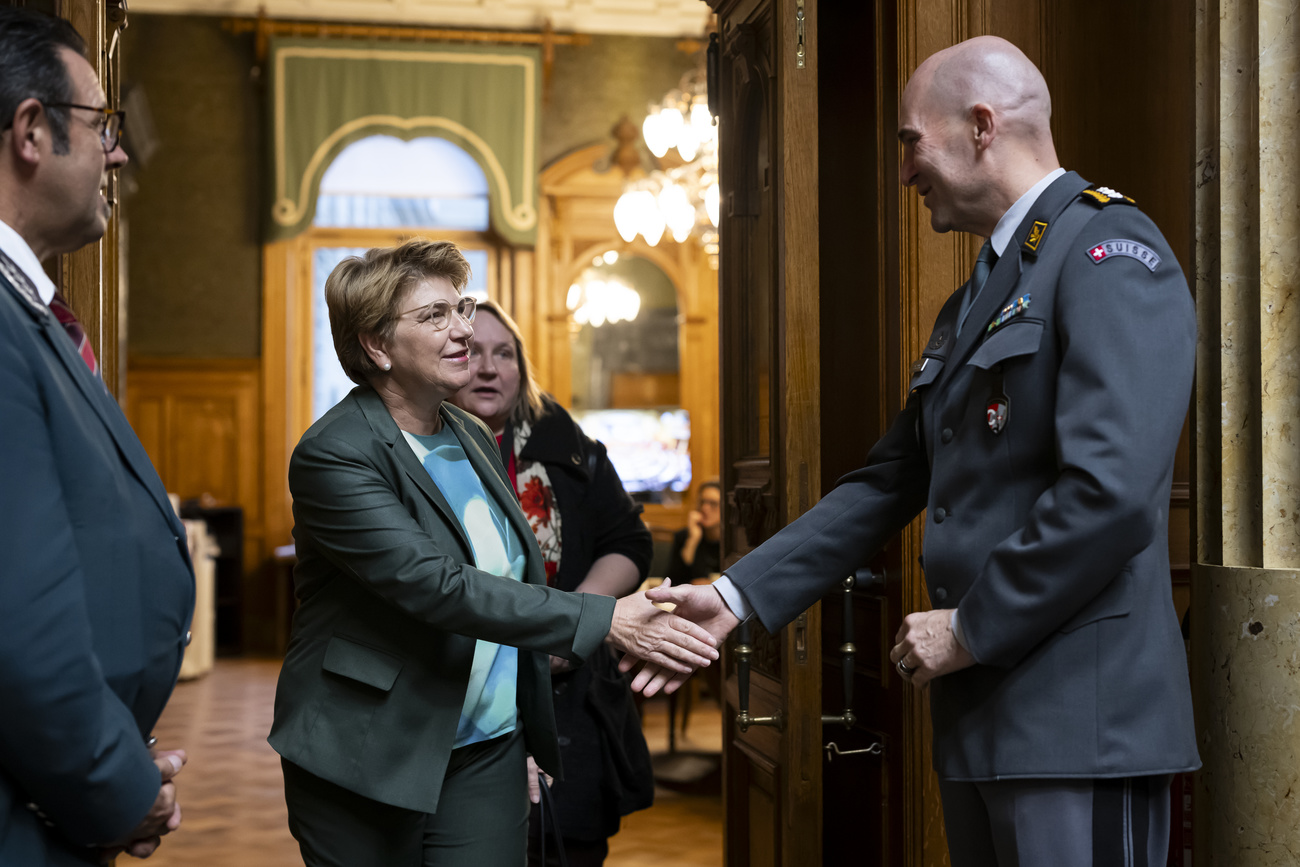
Switzerland in pictures
Swiss President Viola Amherd and the head of the Swiss Armed Forces, Thomas Suessli, greet each other just before the start of the House of Representatives parliamentary session on Thursday September 19.
Following a lively debate, the two chambers of parliament approved an additional CHF4 billion for the armed forces for 2025-2028. This additional expenditure will be financed by offsets of CHF2 billion from international cooperation and CHF2 billion from other areas.
Translated from French by Simon Bradley
More

In compliance with the JTI standards
More: SWI swissinfo.ch certified by the Journalism Trust Initiative



























